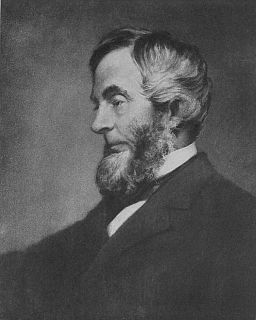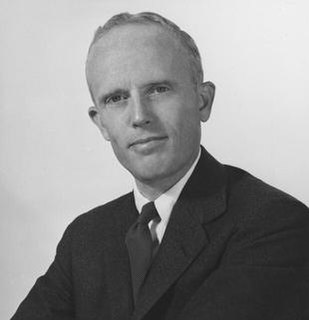A Quote by James Madison
No man can be a competent legislator who does not add to an upright intention and a sound judgment a certain degree of knowledge of the subject on which he is to legislate.
Related Quotes
The naive which is simultaneously beautiful, poetic, and idealistic, must be both intention and instinct. The essence of intention, in this sense, is freedom. Consciousness is far from intention. There is a certain enamoured contemplation of one's own naturalness or silliness which itself is unspeakably silly. Intention does not necessarily require a profound calculation or plan.
According to the technical language of old writers, a thing and its qualities are described as subject and attributes; and thus a man's faculties and acts are attributes of which he is the subject. The mind is the subject in which ideas inhere. Moreover, the man's faculties and acts are employed upon external objects; and from objects all his sensations arise. Hence the part of a man's knowledge which belongs to his own mind, is subjective: that which flows in upon him from the world external to him, is objective.
We can hardly say that the Pharisees had an accurate ‘knowledge’ of man when they pointed to the sins (the real sins) of publicans and sinners. This judgment, which separated knowledge of man from self-knowledge, was as nothing in God’s eyes. The Jew did not have a better understanding because he was able to judge the heathen. In the sphere of abstract morality this could possibly be said, but this is not Biblical morality - O man, who judgest others!
One might feel indignant at the injustice which deals out what is called fame with so unequal a hand, were it not for the reflection that men who are competent to add to the intellectual wealth of the world, and enlarge the domain of knowledge, have learned to take popular applause at its true value, and to find in the faithful discharge of honorable duty a satisfaction which is its own reward.
Knowledge is humanistic in quality not because it is about human products in the past, but because of what it does in liberating human intelligence and human sympathy. Any subject matter which accomplishes this result is humane, and any subject matter which does not accomplish it is not even educational.
There is (gentle reader) nothing (the works of God only set apart) which so much beautifies and adorns the soul and mind of man as does knowledge of the good arts and sciences . Many arts there are which beautify the mind of man; but of all none do more garnish and beautify it than those arts which are called mathematical , unto the knowledge of which no man can attain, without perfect knowledge and instruction of the principles, grounds, and Elements of Geometry.
First, my people must be taught the knowledge of self. Then and only then will they be able to under-stand others and that which surrounds them. Anyone who does not have a knowledge of self is considered a victim of either amnesia or unconsciousness and is not very competent. The lack of knowledge of self is a prevailing condition among my people here in America. Gaining the knowledge of self makes us unite into a great unity. Knowledge of self makes you take on the great virtue of learning.
A scholar's business is to add to what is known. That is all. But it is capable of giving the very greatest satisfaction, because knowledge is good. It does not have to look good or even sound good or even do good. It is good just by being knowledge. And the only thing that makes it knowledge is that it is true. You can't have too much of it and there is no little too little to be worth having. There is truth and falsehood in a comma.
But if one Subject giveth Counsell to another, to do anything contrary to the Lawes, whether that Counsell proceed from evil intention, or from ignorance onely, it is punishable by the Common-wealth; because igorance of the Law, is no good excuse, where every man is bound to take notice of the Lawes to which he is subject.
Oh my research. Well, I got an English Degree. And I got that degree in a certain time/at a certain place. If you add UC Berkeley + 1984 the other side of the = is "new historian" meaning that I studied with and was influenced by those who were interested in how the personal shaped the political (and literary), how science and literature might interact, and what the body got to do with it.


































